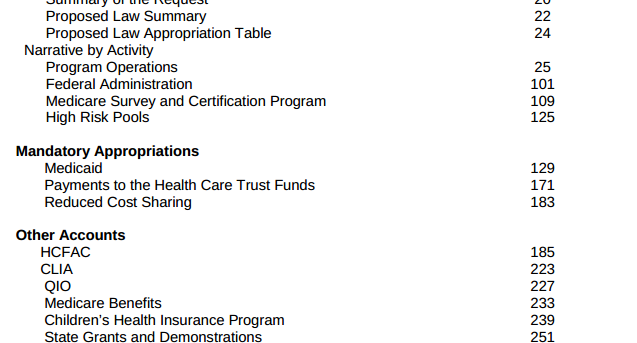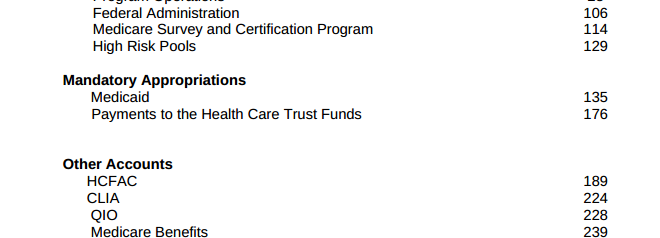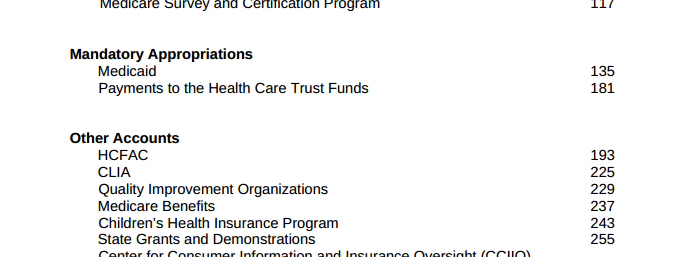by | ARTICLES, BLOG, ECONOMY, POLITICS, POTUS, TAXES, TRUMP
I am very glad the new Tax Cuts and Job Act is now law. With ongoing work reforming and reducing regulations, the tax bill will spur economic growth, and get people to understand the importance of reducing marginal rates. On the corporate side, the huge rate reduction (from 35% to 21%), move to territorial taxation, and expensing of equipment, is a home run. However, on the individual side, Congress allowed politics to get in the way of real reform, and that is inexcusable.
Without any discussion, Congress eliminated the deduction for miscellaneous itemized deductions. This is truly the only legitimate deduction, and it is absolutely necessary to maintain the integrity of the tax code. It gives people the chance to write off expenses incurred to allow them to earn the income they are taxed on. For instance, under current tax law, a person who earns $100K in a venture but had to pay $30K for legal fees to get it, would be able to pay taxes on only the $70K net that was actually made. With the new change now removing the miscellaneous itemized deduction, the person will have to pay taxes on the full $100K!
Another deduction Congress removed summarily is the moving deduction. Similar to the miscellaneous itemized deduction, this is a real and actual expense that is incurred when moving to get a new job (in order to earn the income that will be taxed.) It was removed from the tax code without discussion, and should not have been.
The casualty loss deduction was also eliminated. This enabled you to deduct a loss that was due to a sudden, unexpected event, such as a fire, hurricane, or robbery. Now, if your house burns down, you can no longer write it off. The exception to this change is if your loss is in a federally-declared disaster area. So if your house burns down, you get no deduction. But if it burns down in a large wildfire that was declared a disaster, you can claim the deduction. This is egregious; the effect on the individual — the loss of a house — is absolutely the same. This deduction elimination is unacceptable.
Furthermore, the alimony deduction was thrown out. The alimony deduction is a mechanism that prevents an inequitable tax burden to be created when a married family unit is split into two. It is inequitable and mean-spirited to create a targeted tax burden on people who suffered a family breakup.
While eliminating these important and equitable donations, Congress left in place a number of purely political, social engineering deductions and credits. Congress left in a substantial part of the mortgage deduction, which is really nothing more than a government subsidy to the real estate industry. They left in energy credits, rehabilitation and low income housing credits, and the Alternative Minimum Tax (AMT). It’s disappointing to see Congress talk about simplicity, efficiency, and equitability, and then remove good provisions from the tax code while leaving in parts that are merely political.
by | ARTICLES, BLOG, FREEDOM, GOVERNMENT, OBAMA, OBAMACARE, POLITICS, TAXES
Yesterday it was reported that the Treasury Department paid $3 billion to cover Obamacare cost-sharing subsidies without Congressional approval. The heart of the dispute appears to be whether or not these subsidies were supposed to be funded via yearly appropriations or not. The House Ways and Means Chair, Paul Ryan, argues the former. Health and Human Services, via the Department of Justice, argues the latter.
In order to make sense of the funding dispute, it seemed necessary to dig around in the agency budgets to see how cost sharing was accounted for. Cost-sharing falls under the purview of the “Centers for Medicare & Medicaid Services (CMS)”. Yet, while comparing the budget requests for 2014 (for which the Treasury covered costs) and the ones for 2015 (current) & 2016 (future), it became clear that CMS changed the way it accounted for cost-sharing funding after 2014.
Looking at the 2014 Budget request, CMS had section called “Mandatory Appropriations”, which listed three items: 1) Medicaid 2) Payments to the Health Care Trust Funds 3) Reduced Cost Sharing.
Further in that budget, CMS wrote, “The FY 2014 request for Reduced Cost Sharing for Individuals Enrolled in Qualified Health Plans is $4.0 billion in the first year of operations for Health Insurance Marketplaces, also known as Exchanges. CMS also requests a $1.4 billion advance appropriation for the first quarter of FY 2015 in this budget to permit CMS to reimburse issuers who provided reduced cost-sharing in excess of the monthly advanced payments received in FY 2014 through the cost-sharing reduction reconciliation process.”
This position — that Obamacare cost-savings was to be funded by yearly appropriations– was reiterated by a “July 2013 letter to then Sen. Tom Coburn, Congressional Research Service wrote that, “unlike the refundable tax credits, these [cost-sharing] payments to the health plans do not appear to be funded through a permanent appropriation. Instead, it appears from the President’s FY2014 budget that funds for these payments are intended to be made available through annual appropriations.” (Remember, a 2014 budget would have been written also in 2013)
You can see a picture of the 2014 budget here:

However, Congress rejected those requested appropriations at the time so “the administration went ahead and made the payments anyway.” That is the mystery $3 billion paid for by the Treasury.
There is a noticeable change, however, with the CMS budget for 2015. The cost-sharing portion, which was originally listed as “Mandatory Payments” in 2014, is not listed at a “Mandatory Payment” anymore. Nor is it for 2016 either.
2015 Budget request:

CMS Budget 2015
2016 Budget request:

CMS Budget 2016
Reading through the 2015 and 2016 budget documents, “cost sharing” appears in various areas, usually related to Medicaid, but not in one specific section — contrary to how it was accounted for in 2014, as a specific appropriation from the agency.
What’s equally interesting is that the DoJ argued about this specific matter in their recent brief dated January 26, 2015, saying that, “The House’s statutory arguments are incorrect. The cost sharing reduction payments are being made as part of a mandatory payment program that Congress has fully appropriated. See 42 U.S.C. § 18082. With respect to Section 4980H, Treasury exercised its rule making authority, as it has on numerous prior occasions, to interpret and to phase in the provisions of a newly enacted tax statute. See 26 U.S.C. § 7805(a).”
Yet, as shown above, the “mandatory program for cost-sharing”, that was submitted for funding (and rejected) in 2014, was removed entirely from the 2015 and 2016 budget requests. Now there is no way to even see the “cost-sharing” portion of the budget at all. And this appears to contract the statement by the DoJ that there is a “mandatory payment” program.
Cost sharing subsidies are an enormous part of Obamacare. “These payments come about because President Obama’s healthcare law forces insurers to limit out-of-pocket costs for certain low income individuals by capping consumer expenses, such as deductibles and co-payments, in insurance policies. In exchange for capping these charges, insurers are supposed to receive compensation.”
Cost sharing is expected to cost taxpayers roughly $150 billion over the next 10 years, according to estimates by the Congressional Budget Office.
But we now don’t know the specific funding amounts for the year 2015 or for 2016, and the costs for 2014 are in dispute, involving that $3 billion in funds from the Treasury (which came from somewhere and somehow).
The one thing we do know for certain: the Treasury Department is clearly exercising the power it perceives to have, as a “rule making authority, as it has on numerous prior occasions, to interpret and to phase in the provisions of a newly enacted tax statute.”
by | BLOG

Michael F. Holt’s book, The Political Crisis of the 1850’s, was written in the early 80’s, but its content is eerily prescient of today’s political playground.
In this book, Holt offered his not-so-typical thesis of why the Civil War happened. He suggested that is was not slavery, nor states rights, nor North vs South. Instead, Holt contends that it was the breakdown of the 2-party system of government. The breakdown occurred, not because of the differences of the two parties, but because they were so similar, that there was no real difference or robust competition anymore. Therefore, ideological disputes manifested itself in other forms — and ultimately, the Civil War.
A highly recommended read. From Amazon:
“Holt sees the Civil War as representing a breakdown in America’s democratic political process, more specifically the Second Party System of Whigs and Democrats. He demonstrates this system’s success, beginning in the 1820s and 1830s, in confining sectional disputes safely within the political arena. With the breakdown of vital two-party competition in the 1850s, sectional issues increasingly took on ideological dimension, causing, Americans North and South to see in them dangerous threats to cherished republican institutions. No longer manageable within the arena of politics, sectional differences had to be resolved with in the arena of battle.
The Political Crisis of the 1850s offers a clearly written account of politics (state and federal), sectionalism, race, and slavery from the 1820s through to the Civil War, brilliantly combining the behavioral and ideological approaches to political history”
Has anyone else ever read it? Thoughts? If you are a fan of Holt, you’ll also love his magisterial history of the Whig Party, the enormous tome which fleshes out the topics contained in “The Political Crisis of the 1850s“.
by | ARTICLES, BLOG, FREEDOM, HYPOCRISY, POLITICS

This would be really funny if it wasn’t so sad.
Brad Woodhouse is President of American Bridge 21st Century, a SuperPAC that “monitors what Republican politicians say and fights back when their rhetoric doesn’t match their records.” This is a PAC well known to be funded by billionaire George Soros.
So when Mr. Woodhouse pushed out a news story entitled, “GOP Senate Candidates Bow at Koch Throne”, someone else noticed the irony in attacking the conservative billionaire Koch Brothers, while simultaneously receiving PAC funding from liberal billionaire George Soros.
Andrew Kaczynski, who writes over at the popular BuzzFeed took to twitter to call out Mr. Woodhouse: “It’s almost pathetic how weak the Democrats ‘run against the Koch brothers’ strategy is.”, he wrote.
One might say this falls squarely under the “fights back when their rhetoric doesn’t match their records” mantra proudly proclaimed on the American Bridge website — except that Mr. Woodhouse clearly did not approve of this particular instance of holding people “accountable for their words and actions”. This only applies to Republicans, according to the PAC website.
Mr. Woodhouse huffily replied to Kaczynski: “it’s a shame you have no idea what you are talking about”, to which Mr. Kaczynski bluntly asked, “Since you’re outraged by billionaires influencing politics @woodhouseb will American Bridge be refunding largest-donor George Soros?”
Pointing out that American Bridge takes money from certain billionaires (approved by the Left) while attacking other billionaires (not approved by the Left) did not sit well with Mr. Woodhouse, as he retorted, “That’s a stupid question”, to which Kaczynski confirmed, “So that’s a no?”.
Mr. Woodhouse then began to rationalize the hypocrisy by applying logic Animal Farm: some billionaires are more equal than others.
“Since you don’t understand the difference I don’t think there is any reason to continue this discussion,” wrote Mr. Woodhouse, to which Kaczynski replied, “I guess @woodhouseb your billionaires are better than their billionaires,”.
Mr. Woodhouse clarified that observation by writing, “well, they’re not looking to screw the middle class to enrich themselves – so yeah – maybe you do get it.”
Kaczynski confirmed the duplicity by pointing out, “So you dislike big money @woodhouseb only when it isn’t your ideology. I understand now.”
Mr. Woodhouse’s reply (and final tweet) continued using the leftist playbook by a) casting the Koch Brothers as anti-middle class and b) his opponent as stupid, by responding, “I dislike people who want to stack the deck against the middle class and am irritated by people who don’t get the difference.” You can view the twitter exchange here:
So, American Bridge is okay with taking good billionaire money while attacking bad billionaire money. Because American Bridge “understands” and “feels” and “believes”.
Its website describes how, “We understand the frustration you feel with elected officials who campaign on one set of principles but govern by another, because we feel it too. We believe you deserve better than that. We think our elected officials should have one set of principles, not one for each set of special interests they represent.”
Can we substitute “PAC” for “elected officials” above?
Nope — apparently this sentiment only applies to Republicans, not liberals or PACs. If you check out American Bridge’s opening description, it states that American Bridge “is a progressive research and communications organization committed to holding Republicans accountable for their words and actions and helping you ascertain when Republican candidates are pretending to be something they’re not.”
Therefore, according American Bridge, only Republicans should be accountable for their words and actions, and only Republicans can pretend to be something they are not. Certainly not Mr. Woodhouse, who became irritated when Mr. Kacyznski “helped him ascertain” that American Bridge was “pretending to be something they’re not” by taking (liberal) billionaire money in politics while attacking (conservative) billionaire money in politics.
That rule does not apply to Woodhouse at all. Not one bit. Because Mr. Woodhouse is not a Republican. So Mr. Woodhouse “gets the difference.” (He “understands” and “feels” and “believes”.)
All billionaires are billionaires. But some billionaires are more equal than others. A classical abuse of logic by the Left.




